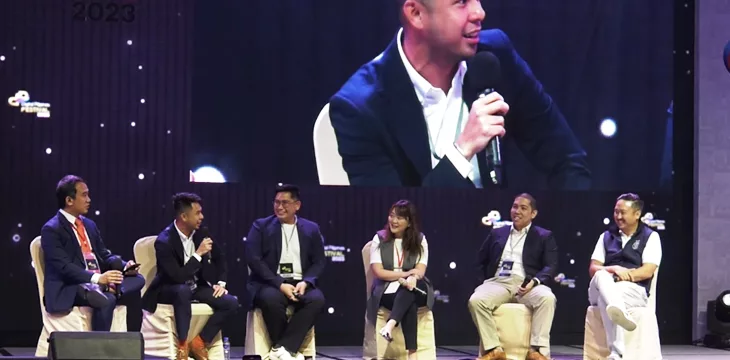|
Getting your Trinity Audio player ready...
|
In September 2023, Filipino Senator Grace Poe acknowledged that the tech-savvy population of the Philippines is in the “best position” to champion digital inclusivity in the country.
“It’s well known that in matters of technology, government tends to fall behind the curve. So, we need brilliant guys like you to bring us up to speed,” Poe remarked at the Asian Institute of Management “Tech for Good 2023” forum.
These sentiments by Poe are similar to what the panelists said at the recent Digital Pilipinas Festival 2023 had in November last year. The panel, composed of experts and thought leaders in the startup ecosystem, shared their insights on the steps the Philippines must take to become the next startup hub in Southeast Asia. The panel includes Franco Varona, managing partner at Foxmont; Gregorio Mantaring, management and partnerships director at JG Ventures; Katrina Chan, executive director at QBO; Rene Cuartero, CEO of AHG Lab; and Kristoffer Briones, country managing director of Block Dojo Philippines, and moderated by Moises Benedict Carandang, the vice president of First Circle Growth Finance.
The budding startup ecosystem in the Philippines
Kickstarting the discussion, Carandang brought up an intriguing topic about the current state of the startup ecosystem in the Philippines and how to transform it into the next big startup hub in the Association of Southeast Asian Nations (ASEAN). Varona sees that one of the huge factors that could affect this space lies in the “young population” the country has. Agreeing with Varona’s opinion, Mantaring sees another facet in capital and talent.
“A higher percentage of our population is actually working age versus non-working age, which means that they are able to contribute to the economy more. Which means that there is a larger base of consumers as well,” Varona explained. “I think all of these different factors make it a very interesting time to be an active participant in the startup ecosystem.”
For Chan, the third part of the equation is the national government’s support and coordination with the startup space:
“I guess the third kind of piece of the flywheel would be the government, of course, and the support and the incentives that are kind of being given. This year, I haven’t seen as much of a coordinated effort to try to support the startup space. So, you know, all of these things working together in concert is a recipe for success.”
Challenges in the Filipino startup space
Briones points out that many Filipinos join the corporate world instead of building their own companies or businesses. These add to the existing problems in the need for venture capital and business mentorship that Cuartero mentioned.
“If you look at [graduates] from top universities in the Philippines, and if you survey them, I’m guessing if you’ve surveyed them, I don’t think joining a startup will be the number one thing that will pop up in their mind. It’s almost like a lot of them are brainwashed to go corporate,” Briones remarked.
For the Block Dojo Philippines managing director, the reason for this is the lack of
homegrown role models to look up to. “As we grow the ecosystem and we have more of these success stories, I think that risk culture—the risk of kind of jumping to do a startup—becomes a little bit less…the more startups become widely known in the country, and the more success stories come up.
The Philippine government is on the right track
Wrapping up the discussion, the startup thought leaders agreed that the Philippines government is doing the right thing in supporting startups and leading in venture capital rounds. Along with it, they commend the positive collaborations of the people in the industry who are eager to help newbies and provide foundational support.
“[The government is] on the right track at the legislative level, even at the local government, the regional government, and the national agencies. The level of awareness about startups and the issues around this ecosystem has never been higher than in this in the current government,” Chan said.
The only feedback Chan sees is “that timing is everything, especially for startups.” And for the Philippines startup ecosystem, Chan believes now is the time for everyone to act and participate.
For more insights about the startup economy, Halal industry, and cybersecurity during the Digital Pilipinas 2023, follow these links: Day 1 and Day 2.
If you’re one of the budding startups eager to join the community, the first Philippine incubator program headed by Block Dojo Philippines is now working on its first Cohort. So, if you’re an entrepreneur with great business ideas aiming to solve real-world problems, secure your slot now.
Watch: Block Dojo Philippines is looking for idea stage entrepreneurs

 02-25-2026
02-25-2026 




